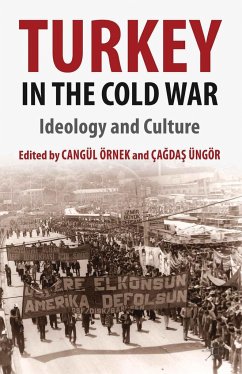
Stalin's Cold War
Soviet Foreign Policy, Democracy and Communism in Bulgaria, 1941-48
Versandkostenfrei!
Versandfertig in 6-10 Tagen
38,99 €
inkl. MwSt.
Weitere Ausgaben:

PAYBACK Punkte
19 °P sammeln!
This work offers a major new interpretation of the Stalin's role in the gestation of the Cold War. Based on important new evidence, Dimitrov reveals Stalin's genuine efforts to preserve his World War II alliance with the US and Britain and to encourage a degree of cooperation between communists and democratic parties in Eastern Europe.














